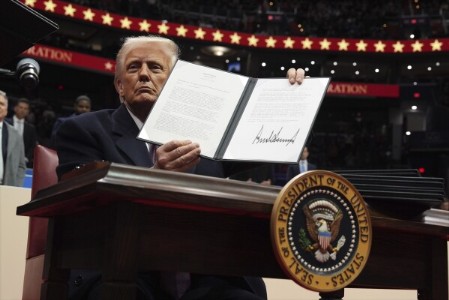Imran Khan lauds Muslim Ummah as UN designates March 15 as ‘International Day to Combat Islamophobia’
India raised questions over the Pakistan-sponsored UNGA resolution saying it may end up downplaying the seriousness of phobias against all other religions, and said that it is time that we acknowledged the prevalence of religiophobia, rather than single out just one.
Total Views | 186
In what can be called a concern, the United Nations adopted a resolution introduced by Pakistan and designated March 15 as ‘International Day to Combat Islamophobia’. The resolution was sponsored by 57 members of the Organisation of Islamic Cooperation (OIC), and eight other countries, including China and Russia.
Pakistan PM Imran Khan called it a ‘landmark’ resolution and congratulated the Muslim Ummah as the UN claimed that there has been increasing in Islamophobia. “Today UN has finally recognized the grave challenge confronting the world: of Islamophobia, respect for religious symbols & practices & of curtailing systematic hate speech & discrimination against Muslims. The next challenge is to ensure implementation of this landmark resolution”, he tweeted.

The UNGA resolution was introduced by Pakistan's Permanent Representative to the UN Munir Akram on behalf of the Organisation of Islamic Cooperation (OIC) countries. He said, "Islamophobia is a reality and that the growing phenomenon needs to be addressed."
However, India raised questions over the Pakistan-sponsored UNGA resolution saying it may end up downplaying the seriousness of phobias against all other religions, and said that it is time that we acknowledged the prevalence of religiophobia, rather than single out just one. "We are concerned about elevating the phobia against one religion to the level of an international day, to the exclusion of all the others," India's Permanent Representative to the United Nations TS Tirumurti.
Discouraging the phobia against one religion being elevated to the level of international day, the Indian envoy said, "Celebration of a religion is one thing but to commemorate the combating of hatred against one religion is quite another. In fact, this resolution may well end up downplaying the seriousness of phobias against all other religions."
"Let us not forget that in 2019 we have already proclaimed August 22 as the International Day commemorating the victims of acts of violence based on religion or belief, which is fully inclusive in nature. We even have an International Day of Tolerance observed on 16 November. We are not convinced that we need to elevate phobia against one religion to the level of an international day," he stated.
Tirumurti expressed deep concern on the rise in instances of discrimination, intolerance and violence directed against members of many religious communities in various parts of the world. "This is true whether they were Zoroastrians or Buddhists or Jews or people of any other faith," he added. He condemned all acts motivated by antisemitism, Christianophobia or Islamophobia. He said that such phobias are not restricted to Abrahamic religions only. In fact, there is clear evidence that over decades such religiophobias have, in fact, affected the followers of non-Abrahamic religions as well, he stated.
Also Read: Phobias are not restricted to Abrahamic religions: India at UN on Islamophobia resolution
He mentioned the emergence of contemporary forms of religiophobia, especially anti-Hindu, anti-Buddhist and anti-Sikh phobias. He noted that these contemporary forms of religiophobia can be witnessed in the increase in attacks on religious places of worship like gurudwaras, monasteries, temples etc or in the spreading of hatred and disinformation against non-Abrahamic religions in many countries.
Destruction of Bamyan Buddha, violation of gurudwara premises, the massacre of Sikh pilgrims in gurudwara, attack on temples, glorification of breaking of idols in temples etc contribute to the rise of contemporary forms of religiophobia against non-Abrahamic religions, said Tirumurti in his statement.
"Hinduism has more than 1.2 billion followers, Buddhism more than 535 million and Sikhism more than 30 million spread out around the world. It is time that we acknowledged the prevalence of religiophobia, rather than single out just one," he added.






